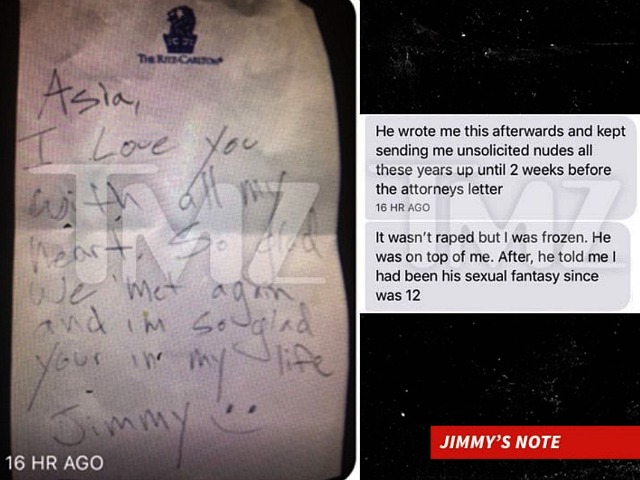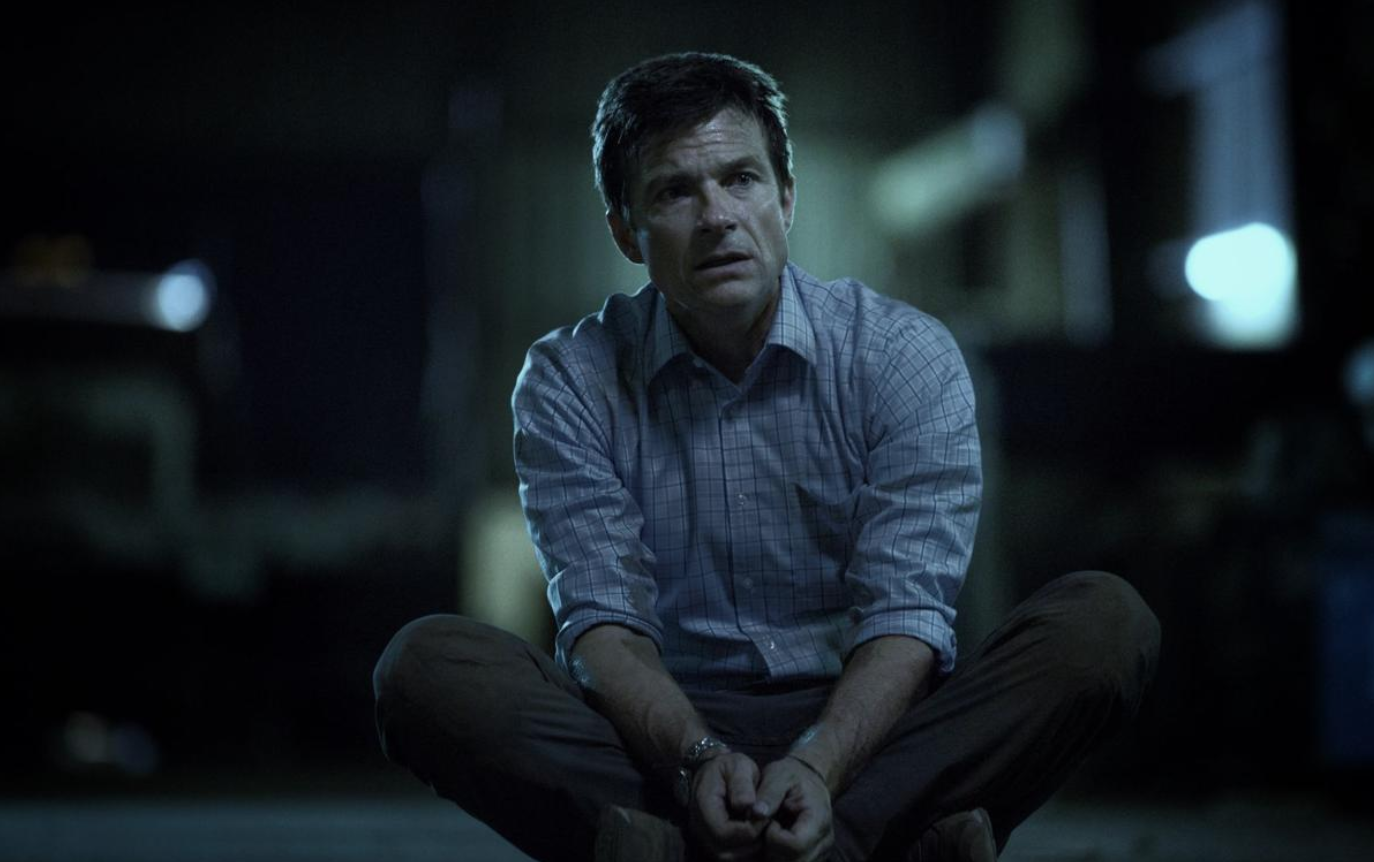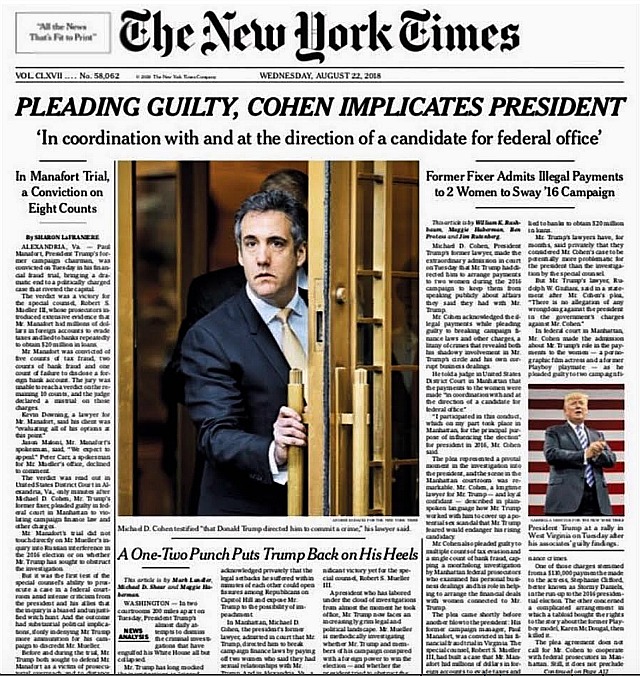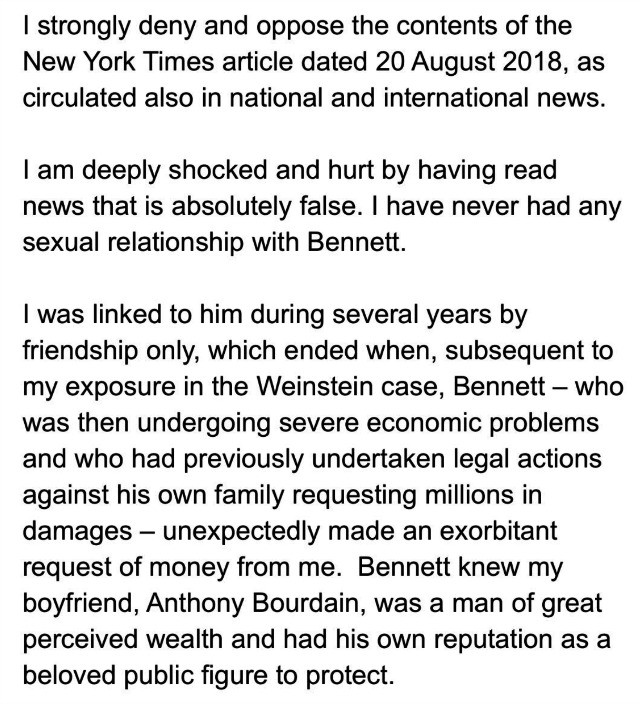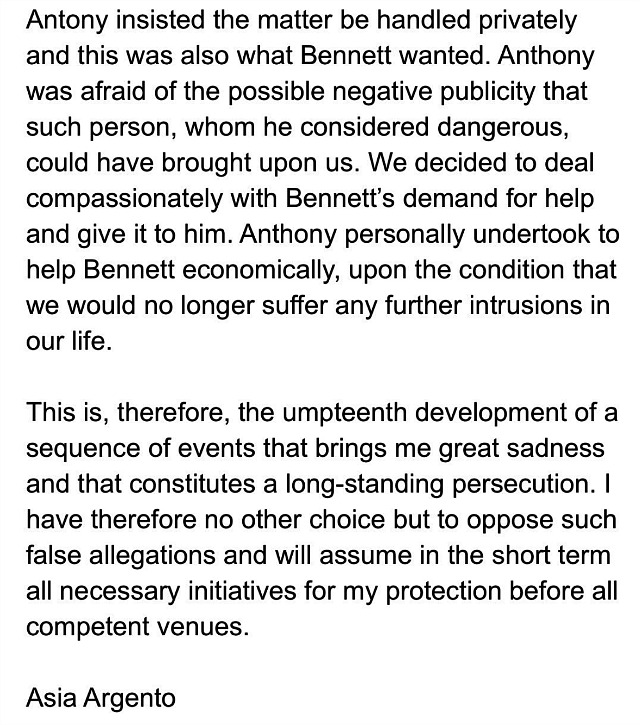Having read the TMZ piece with the Asia Argento-Jimmy Bennett photos and Argento’s text to a friend about same, a colleague says the following:
“Asia says she wants to be part of the 90% that doesn’t give a fuck about this shit? Really? Fuck you, lady. You’ve been doing nothing but being a #MeToo crusader for a year. YOU are the one that made people freak about nearly every man in Hollywood. What the fuck?
“And by the way it doesn’t matter if Jimmy came onto her or not. It really doesn’t. Sure, if she wants to stand on the side of those who deny they assaulted people because those people were willing participants, just like Harvey Weinstein? Great. Go for it. But that is not who she has been in the public eye.
“She’s also ready to lay 100% of the blame on poor, dead Anthony Bourdain, who’s beginning to look more and more like the one who wanted it covered up because his reputation was also on the line.”
HE comment: In the TMZ text Argento describes a randy Jimmy plowing her soil and writing afterward that he loves her…totally into it. I wasn’t there, but this seems a lot more realistic than the image that certain Twitter snowflakes were advancing, that of a traumatized, sexually uncertain youth who felt assaulted by a ravenous older woman.
HE to London-based critic who shall be nameless: Are you still maintaining that my initial take on this episode was the “wrong” one?

